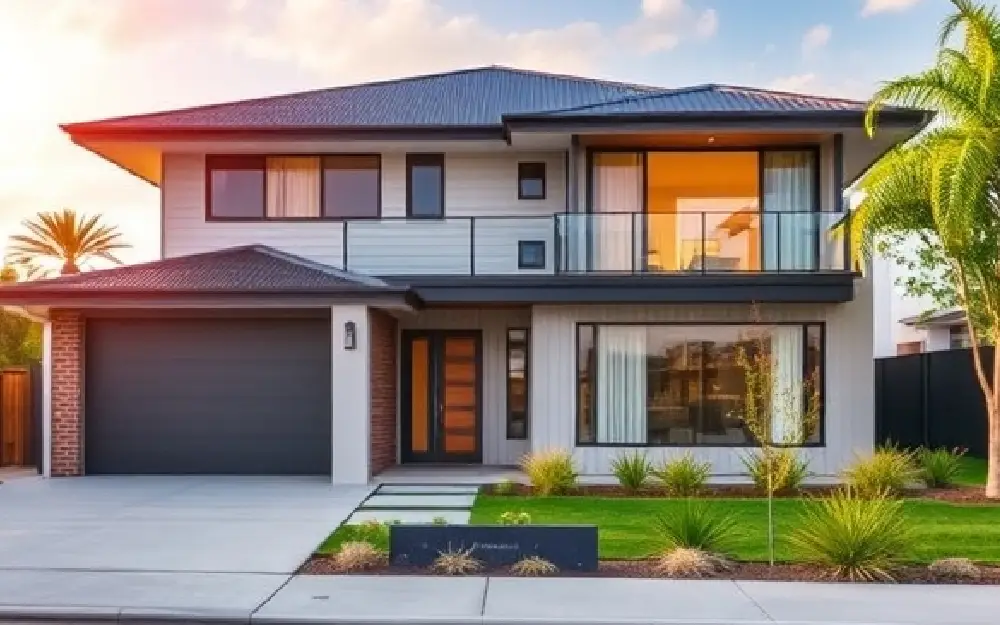
The Benefits of Buying a Newly Built Home vs. an Older Property
When it comes to buying a home, one of the most important decisions you'll make is whether to choose a newly built home or an older property. Each option has its unique advantages, and understanding the differences can help you make an informed decision based on your lifestyle, budget, and preferences. In this article, we’ll explore the benefits of both newly built homes and older properties to help you determine which one is right for you.
Benefits of Buying a Newly Built Home
- Modern Design and Layout
Newly built homes typically come with the latest design trends and modern layouts. Open floor plans, larger kitchens, and spacious living areas are just some of the features that appeal to today's homebuyers. These homes are designed to maximize space and functionality while offering contemporary finishes.
- Open-concept designs for a more flexible living space
- Energy-efficient features such as LED lighting, smart thermostats, and advanced HVAC systems
- Customization options, such as selecting finishes, fixtures, and layouts
- Energy Efficiency
New construction homes are generally much more energy-efficient than older properties. With the latest technology and building materials, newly built homes are designed to reduce energy consumption, saving you money on utility bills.
- Better insulation for improved temperature control and reduced heating/cooling costs
- High-performance windows to minimize heat loss
- Efficient appliances that consume less energy
- Low Maintenance Costs
One of the biggest advantages of purchasing a newly built home is that everything is brand new, meaning you won’t have to worry about repairs or replacements for several years. The roof, appliances, plumbing, electrical systems, and HVAC units will all be in top condition.
- No immediate repairs required for major systems and appliances
- Less frequent maintenance needed for the first few years
- Warranties on various components of the home (roofing, appliances, HVAC systems, etc.)
- Modern Technology and Smart Home Features
Many newly built homes come with pre-installed smart home technology, offering added convenience and security. Features like smart thermostats, security cameras, and voice-controlled lighting are becoming increasingly popular in new homes.
- Smart home integration for better control over your home environment
- Increased security with smart locks, cameras, and motion sensors
- Convenience with voice assistants and automated systems
- Customization Options
When purchasing a newly built home, especially during the early stages of construction, you often have the ability to customize certain aspects of the home. Whether it’s choosing cabinetry, flooring, or paint colors, this personalization allows you to create a space that fits your specific tastes and needs.
- Personalized finishes for kitchen, bathrooms, and flooring
- Flexible layout choices depending on the builder and development stage
- Opportunity to select appliances and fixtures that match your style
Benefits of Buying an Older Property
- Established Neighborhoods
One of the main advantages of purchasing an older home is the opportunity to live in a more established neighborhood. Older properties are often located in well-established communities with mature trees, a sense of history, and a strong local infrastructure. These neighborhoods are typically more walkable and may offer convenient access to schools, parks, and shops.
- Charming, mature neighborhoods with character
- Proximity to local amenities such as parks, schools, and shops
- Stronger sense of community and established social networks
- Character and Charm
Older homes often come with unique architectural features and charm that newer homes may lack. From intricate moldings to vintage woodwork and fireplaces, the design elements of older homes have a distinct character that many buyers find appealing.
- Timeless architectural features such as hardwood floors, crown molding, and high ceilings
- Unique floor plans that may differ from modern cookie-cutter designs
- Character-filled exteriors with brick facades, porches, and larger lots
- Larger Lot Sizes
In many cases, older homes are situated on larger lots compared to newly built homes. If outdoor space is important to you, an older property may provide more room for a garden, outdoor entertaining, or future expansions.
- Larger yards for gardening, outdoor living spaces, and privacy
- More space between homes for a greater sense of separation
- Potential for expansion (if allowed by local zoning laws)
- Price and Value
Older homes are often priced lower than newly built homes, making them a more affordable option for first-time homebuyers or those on a budget. While some repairs and upgrades may be necessary, the lower purchase price can make it easier to invest in renovations that will improve the home’s value over time.
- Lower initial purchase price
- Opportunity to build equity through home improvements
- More negotiating room for buyers, as older homes may have more room for price adjustments
- Established Landscaping
Older homes often come with established landscaping that has had years to mature. This can be a huge benefit for buyers who want a beautiful, ready-made garden or outdoor space without the hassle of planting and waiting for growth.
- Mature trees that provide shade and privacy
- Beautiful gardens with established flowers, shrubs, and plants
- Greater curb appeal from mature landscaping
Conclusion
Both newly built homes and older properties offer their own set of advantages, and your decision ultimately depends on your preferences, budget, and long-term goals. If you prefer a modern, low-maintenance home with energy-efficient features and customization options, a newly built home may be the right fit for you. On the other hand, if you value charm, character, and an established neighborhood, an older home might be the perfect choice.
Whichever option you choose, it’s important to consider your lifestyle needs, financial situation, and the long-term value of the property. By weighing the pros and cons, you can make a more informed decision and find a home that suits you and your family for years to come.
